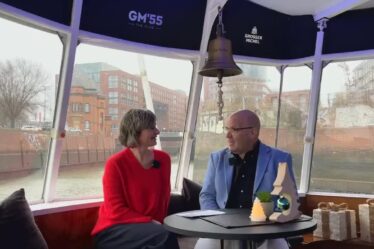At the 83rd session of the IMO’s Marine Environment Protection Committee (MEPC 83), held in London from April 7–11, climate policy was once again at the center of maritime negotiations.
Among the attendees was Sönke Diesener, policy expert at NABU (Nature and Biodiversity Conservation Union), who has been working on air pollution and climate issues at sea since 2014.
One of the key developments he highlights is the successful establishment of the North Atlantic Emission Control Area, which went through “not by surprise, but through solid orchestration” involving NGOs and littoral states including Portugal, France, and the UK.
However, not all outcomes were positive. A coalition of around 60 countries – including members from both the EU and the South Pacific – failed to hold together on a proposed CO₂ levy, raising questions about the fairness and feasibility of climate finance across regions.
From NABU’s perspective, IMO’s regulatory process is “on track” in terms of timing, but the level of ambition remains insufficient. Diesener points to issues like lifecycle assessments of fuels, enforcement standards, and the complexity of aligning global ambitions with national interests.
Germany, he notes, plays an important but quiet role – not headline-grabbing, but structurally influential as part of the EU bloc, which brings both political will and maritime tonnage to the negotiation table.
When asked about NABU’s role, Diesener frames the organization as both agenda-setter and watchdog. “Sometimes we raise the red flag. Sometimes we help write the playbook,” he says -describing a model of engagement that spans local awareness in Hamburg and technical advocacy in London.
And in a final, more personal note, Diesener emphasizes the urgency: “We used to see flooding in Hamburg two or three times a year. Now it’s ten. And in the South Pacific, it’s not just water – it’s about survival.”

















